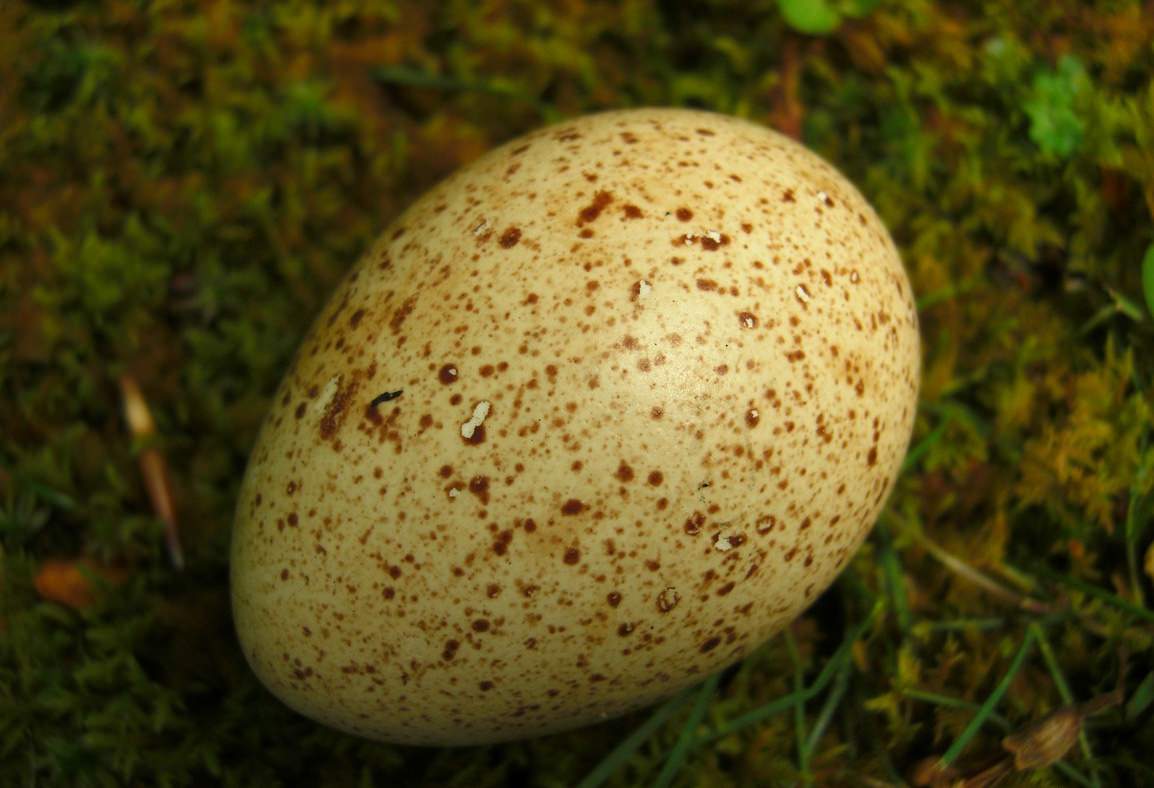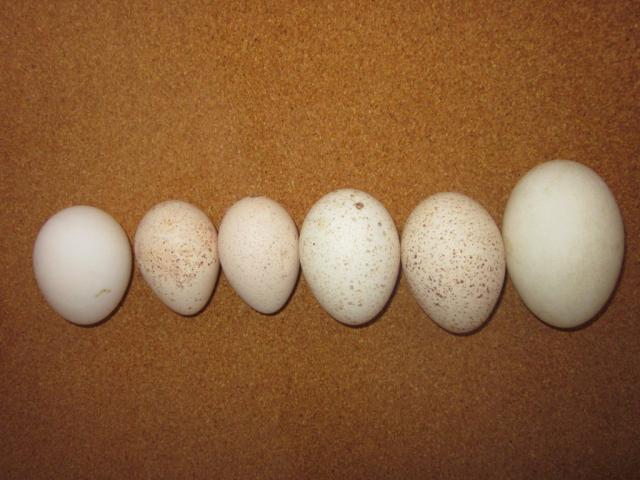If you are interested in earning an income with your chickens and other fowl, check this out: Chicken Rich
Turkey eggs come in a fascinating array of colors and patterns, unlike the typical white or brown chicken eggs many of us are accustomed to. From rich chocolate browns to pristine creams to intricately speckled beauties, turkey eggs showcase the diverse palette found in nature.
In this article, we will explore the range of turkey egg shades, what influences their coloration, and how to identify genuine turkey eggs. Whether you are an aspiring turkey farmer or just curious about these remarkably hued eggs, read on to uncover the colorful world of turkey eggs!
What Colors Can Turkey Eggs Be?
Turkey eggs can display an exciting spectrum of colors and markings. Here are some of the most common turkey egg varieties:
-
Cream – Pale creamy white is the most frequent turkey egg color. It resembles chicken eggs but in a lighter shade.
-
White – Some turkey eggs are a clean, bright white. This less common pure white closely matches white chicken eggs.
-
Tan – Tan turkey eggs have a peachy beige tone, They are slightly darker than cream eggs
-
Light Brown – Many turkey eggs are a light milk chocolate hue, with a soft brown color.
-
Dark Brown – A small percentage of turkey eggs are a deep, dark chocolate brown.
-
Pinkish – Occasionally, turkey eggs take on a subtle pinkish tint
-
Speckled – Speckles, spots and flecks in shades of brown are common on turkey eggs of all base colors. The speckling can vary from sparse to dense.
-
Olive green – Rarely, some turkey eggs display an olive green tinge.
What Factors Influence Turkey Egg Color?
A few key factors account for the variations seen among turkey egg colors:
1. Turkey Breed
The breed of the turkey plays a major role in egg color. Different heritage breeds are genetically predisposed towards certain egg shades. For example:
-
Bourbon Red: Light reddish-brown eggs.
-
Beltsville Small White: Creamy white eggs.
-
Black Spanish: Pinkish or creamy light brown eggs.
So by knowing the turkey breed, you can narrow down the likely egg colors.
2. Individual Turkey Variations
Even within the same breed, no two turkey hens lay identical eggs. There are individual differences between turkeys that lead to color variations. Just like humans have uniquely personalized fingerprints, each turkey creates eggs with one-of-a-kind pigmentation.
3. Diet
A turkey’s diet can slightly impact egg color over time. For example, increased carotenoids from greens and yellow veggies may impart a richer orange tone. Or blood-spotting on eggs could suggest dietary mineral deficiencies. But generally, diet has only a minor influence on egg color.
How Big Are Turkey Eggs Compared to Chicken Eggs?
On average, turkey eggs are substantially larger than chicken eggs. A typical chicken egg weighs around 50 grams and is 2.5 to 3 inches long. In contrast, a standard turkey egg weighs about 90 grams and measures 3 to 4 inches long.
So turkey eggs are roughly 50% bigger than chicken eggs by weight, and at least 1 inch longer. Their greater size accounts for the higher nutrition content per egg compared to chicken eggs.
That being said, heritage turkey breeds like Midget White do lay smaller turkey eggs more comparable to large chicken eggs. And commercial broad-breasted turkeys tend to have bigger eggs than heritage breeds. But in general, turkey eggs are quite noticeably larger than any chicken egg.
Are Turkey Eggs Good to Eat?
Absolutely! Turkey eggs are just as delicious and nutritious as chicken eggs. They can be prepared all the same ways – scrambled, fried, poached, baked, and more. Their rich taste and velvety texture make them excellent for cooking and baking.
In fact, some chefs seek out turkey eggs specifically for their superior culinary qualities compared to blander chicken eggs. Their impressive size also allows a single turkey egg to substitute for multiple chicken eggs in recipes.
One thing to note with turkey eggs is that their lower albumen content can make fried or poached eggs turn out a bit sloppier. So an extra 30 seconds of frying time helps compensate for the less viscous whites.
Overall though, turkey eggs are a phenomenal egg choice, loaded with protein, nutrients and mouthwatering flavor. Their unique colors and patterns only add to their appeal.
How Do You Tell If An Egg Is From a Turkey?
When trying to identify whether an unmarked mystery egg is from a turkey, here are some tell-tale signs to look for:
-
Size – A turkey egg will be considerably larger than a typical chicken egg, often over 3 inches long and 90 grams. But be aware some heritage turkey eggs are smaller.
-
Pointed shape – The tapered narrow end of a turkey egg has a more pronounced point than a rounded chicken egg.
-
Speckles – While not all contain speckles, the presence of brown spotting strongly suggests a turkey egg.
-
Shell texture – Turkey egg shells feel thicker and coarser than chicken egg shells.
-
Color – Shades of cream, tan, brown or pinkish lean toward turkey, while pure white or pale blue are more chicken-like. But color alone doesn’t guarantee the source.
If you can check multiple characteristics, that will increase the accuracy of determining whether an unidentified egg comes from a turkey hen or not.
Can You Hatch Turkey Eggs?
Turkey eggs can absolutely be hatched, whether under a broody turkey hen or in an artificial incubator. Here are some key things to know about hatching turkey eggs:
-
Incubation period: Turkey eggs take 28 days to hatch, slightly longer than the 21 days for chicken eggs.
-
Ideal temperature: Maintain a 99.5°F temperature and 55% humidity in your incubator.
-
Hatching aggression: Turkey poults may begin hatching up to 48 hours before the due date and tend to be more aggressive, sometimes pecking at unhatched eggs. Isolate poults in a brooder box as they emerge to prevent this issue.
-
Lower fertility rates: Average turkey egg fertility rates are about 50-60% compared to 90%+ for chickens. So expect fewer viable embryos.
-
Higher embryo mortality: On average, a greater percentage of developing turkey embryos die before hatching compared to hardy chicken embryos.
With proper incubation conditions, turkey eggs can result in healthy poults. But be prepared for lower fertility and hatch rates compared to chicken eggs. The reward of fluffy turkey babies makes the extra effort worthwhile!
Where Can You Buy Turkey Eggs?
Turkey eggs may not be as readily available as chicken eggs at your everyday supermarket. But you can often source them from local farmers, specialty grocers, health food stores or online outlets.
Good options for locating turkey eggs include:
-
Direct from turkey breeders – Check if any turkey farms in your area sell surplus eggs.
-
Farmers markets – Turkey egg vendors sometimes attend local farmers markets.
-
Health food stores – Specialty grocers like Whole Foods may carry turkey eggs from local producers.
-
Online – Several websites sell turkey eggs that can be shipped like My Pet Chicken or Cackle Hatchery.
With some searching, you should be able to find a supplier of delightful, colorful turkey eggs close to home or able to deliver them. They may cost 2-3 times more than chicken eggs due to lower supply. But the premium taste and uniqueness make them well worth exploring!
Can You Tell If Turkey Eggs Are Fertile?
Unfortunately, there is no reliable way to determine if a turkey egg is fertile by sight alone. You need to candle the egg using a bright light source to possibly see the developing embryo.
Here are some visible signs that suggest an egg may be fertile:
- Ideal shape – Uniform oval without odd bulges or dents.
-Smooth, undamaged shell – No cracks, missing pieces or porous spots.
-Nice weight – Feels heavier than very lightweight infertile eggs.
But many fertile eggs exhibit none of those indicators. The only surefire way to confirm embryo development is by candling at 1 week and again near hatching.
If incubating, expect roughly a 50% fertility rate and candling will allow you to remove the many non-developing eggs. Sadly, a turkey egg’s beautiful exterior provides no hints about its potential fertility.
What Is the Best Way to Cook Turkey Eggs?
Turkey eggs can be cooked in all the same versatile ways as chicken eggs. However, some cooking methods better highlight the rich, savory flavor of turkey eggs:
-
Scrambled – Gently scrambled turkey eggs make an ultra-creamy, delicious breakfast.
-
Poached – The luscious yolks of poached turkey eggs make decadent toppers for dishes.
-
Hard boiled – Sliced hard boiled turkey eggs are the perfect protein-packed snack or salad topping.

Find out what makes Turkey Eggs so cool!
Turkey eggs are edible, quite edible! Actually, if you come across any nest of eggs, regardless if it’s a robin egg or kill-deer egg, they are all edible!
Now, I’m not encouraging you to start raiding nests, but if you do have the opportunity to eat a turkey egg, don’t turn up your nose! Dig in and enjoy!
The turkey egg is much larger than a chicken egg. Up to 30% – 50% larger, in fact! Their ends are much pointier than a chicken egg.
In this picture below, the first egg is a chicken egg, the next four are turkey eggs (see their pointy ends?) and the last egg is a goose egg.


Do Turkeys Lay Eggs?
It’s an important question to answer: Do turkeys have babies or eggs?
After mating, the turkey will find her nesting spot and lay an egg. In the wild, turkeys will lay an egg a day for about 11 days and then set on them for 28 days to hatch out her chicks.
Without a tom, a hen can lay an egg, but it won’t be fertile. But once a hen has her clutch of fertile eggs, she will set on the nest for 28 days. Whether she is a wild bird or one in captivity, she puts herself in danger during this period because she is literally in one place for such a long period. Predators can quickly catch on and end the whole process!
The hen will find a place or will need to be provided a nest for her eggs that is a secluded, safe place where she can be protected as she rests and can see predators when she raises her head.
You can even watch a turkey laying an egg here:
Why Don’t We Eat Turkey Eggs!
FAQ
How do you identify a turkey egg?
Can turkeys lay brown eggs?
What month do wild turkeys lay eggs?
What color are heritage turkey eggs?
